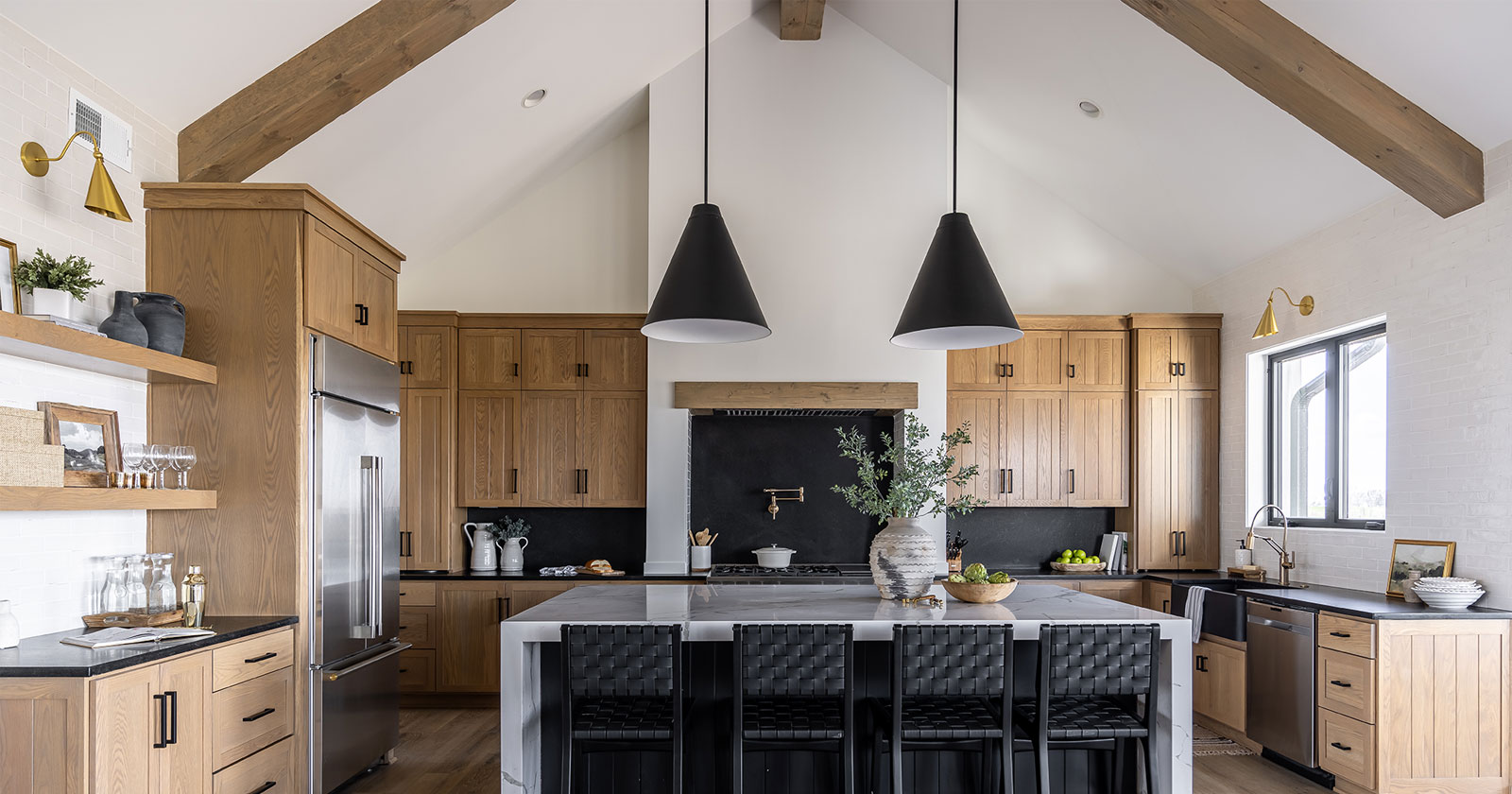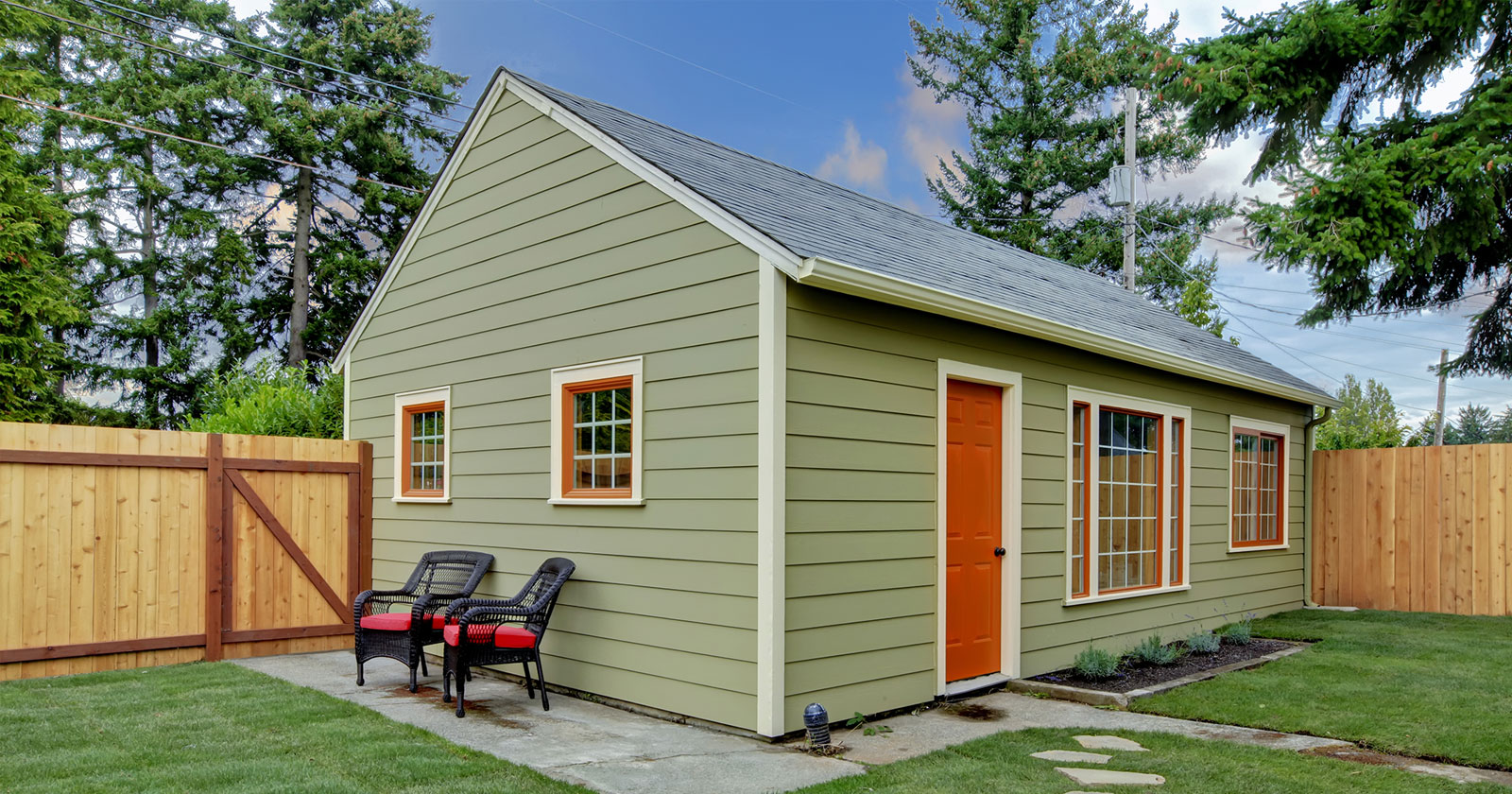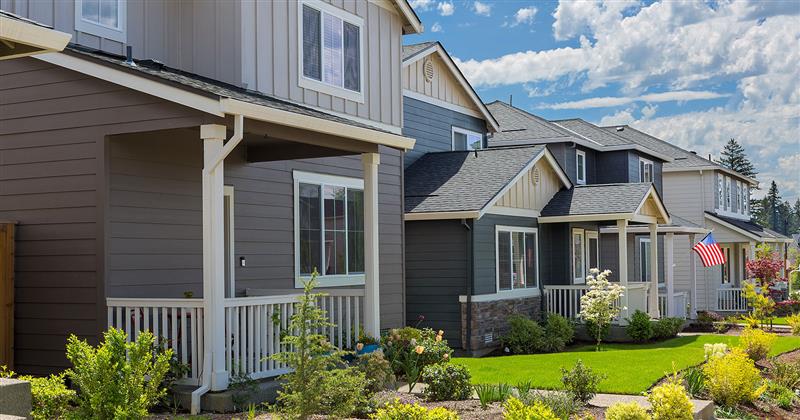The heightened appeal of buying a brand new, never-before-lived-in home is undeniable for homebuyers, which is why new-build construction remains one of the most profitable investment strategies in the country. However, when it comes to residential construction, investors must decide whether to build luxury or tract homes.
Below, we’ll explain the differences between luxury new builds and tract houses, including the pros and cons of each and which is best for you based on your investment strategy.
Below, we’ll explain the differences between luxury new builds and tract houses, including the pros and cons of each and which is best for you based on your investment strategy.
Luxury New Builds
What is a Luxury New Build?
Luxury builds, unlike tract homes, are high-end, custom, or semi-customized homes built with premium materials. These homes are typically built in premium locations–exclusive neighborhoods or high-end communities–and come with unique architectural designs and home features
Luxury builds, unlike tract homes, are high-end, custom, or semi-customized homes built with premium materials. These homes are typically built in premium locations–exclusive neighborhoods or high-end communities–and come with unique architectural designs and home features
Luxury Home Pros
- High-Profit Margins: Luxury homes have significantly higher sale prices than tract homes. This, in turn, equates to higher profit margins for investors.
- Customization & Unique Appeal: Luxury home builders have the ability to work from a blank canvas. This enables investors to add eccentric features to their investment property, including:
- Unique architecture
- Green materials
- Energy-efficient appliances
- Smart home technologies
- High-end finishes
- Distinctive landscaping
With each unique and attractive addition to a luxury home, an investor can expand resale value and buyer appeal.
- Market Differentiation: With high-end materials, customized architectural designs, and appealing interior and exterior features, luxury homes often appreciate better than tract homes. Additionally, the property’s uniqueness creates less competition while attracting high-net-worth buyers looking to spend top dollar for a home.
Luxury Home Cons
- Higher Upfront Costs: As you can imagine, land acquisition, materials, construction, and labor costs are substantially higher for luxury new builds. High-end building materials can make sourcing the project more time-consuming, creating longer construction times and holding times for investors.
- More Risks: More upfront costs mean higher risks. Additionally, luxury homes can be vulnerable to economic downturns. Rising interest rates or recessions can slow high-end real estate and delay sales.
Tract House
What is a tract house?
Tract housing is a type of residential development built on a single parcel of land with similar homes surrounding it. Unlike modular homes assembled in a factory, tract home developments are built on-site by scale. These developments are typically found in suburban areas and are often referred to as “planned communities,” with anywhere from a few dozen to thousands of homes within the community.
Tract housing is a type of residential development built on a single parcel of land with similar homes surrounding it. Unlike modular homes assembled in a factory, tract home developments are built on-site by scale. These developments are typically found in suburban areas and are often referred to as “planned communities,” with anywhere from a few dozen to thousands of homes within the community.
Tract Housing Pros
- Smaller Initial Investment: Unlike luxury builds, tract homes are a much more affordable new-build investment strategy with fewer upfront costs. Large home builders, tasked with building the homes within planned communities use economies of scale, which equates to labor and material cost savings and increased profitability for investors.
- Higher Demand: With ongoing economic uncertainty, first-time homebuyers and middle-income families are looking for affordable homes to purchase. While sale prices teeter higher and higher with specialty designs and features within luxury homes, tract homes’ uniformity, and economies of scale development, maintain affordability and practicality–with the average new-build tract home costing just over $400,000. This, in turn, creates broader appeal and a larger consumer pool for sellers.
- Rental Reliability & Scalability: With high demand and lower upfront costs, many investors leverage tract homes for buy-and-hold long-term strategies. By renting tract homes, investors can build a reliable rental income stream to reinvest in new properties. In addition, larger tract home developments offer multi-unit purchases at a discount to investors. By purchasing multiple rental properties at a discount, investors can expand profits and expedite business growth.
Tract Home Cons
- Poor Resale Value: In many cases, economies of scale development projects use lower-priced (lower-quality) materials to lower building costs. Additionally, the conformity of your tract home compared to neighbors can make it difficult to stand out and find buyers willing to pay top dollar for your property. That is why the resale value for tract homes is usually less than that of luxury, customized properties.
- Limited Customization: Speaking of customization, tract homes limit your ability to think outside the box and generate consumer appeal. With cookie-cutter standardized designs, common HOA zoning laws, and developer restrictions, expect less say in the home’s design and features.
Luxury Builds vs. Tract Homes: Which Build Is Best for You?
The decision to build luxury builds vs. tract homes depends on your investment strategy, where you plan to build, and your financial resources.
Investment Strategy
Are you a short- or long-term investor? What is your budget? What are your overall business goals? These are questions you should answer before venturing into a new build project.
For short-term experienced investors, with adequate financing, luxury homes provide the profit margins and high-end appeal to cash in on each investment. Luxury new-build investing can also create fewer headaches. Investors can hire their own team of players to build, market, and sell a luxury property. With fewer resources to worry about and a dedicated and trusted team by your side, luxury new build investors have peace of mind throughout the project.
On the contrary, tract homes provide beginner investors with a less risky investment option. And, tract home communities allow investors to purchase multiple rental units at reduced costs. Multiple units mean multiple rental income streams for passive income, or to reinvest and scale.
For short-term experienced investors, with adequate financing, luxury homes provide the profit margins and high-end appeal to cash in on each investment. Luxury new-build investing can also create fewer headaches. Investors can hire their own team of players to build, market, and sell a luxury property. With fewer resources to worry about and a dedicated and trusted team by your side, luxury new build investors have peace of mind throughout the project.
On the contrary, tract homes provide beginner investors with a less risky investment option. And, tract home communities allow investors to purchase multiple rental units at reduced costs. Multiple units mean multiple rental income streams for passive income, or to reinvest and scale.
Where you Build
It’s important to research the area you plan to build in. What are the target demographics within the region? Are you building in an area frequented by middle-income or higher to upper-class families? Outpricing your target market or building a home that lacks local appeal could leave you in holding purgatory and financial despair.
Additionally, what if any zoning, HOA, and/or local building restrictions are there? In some states and regions, investors are restricted from building multiple small tract builds outside of local developments. While HOAs are synonymous with strict zoning laws, many high-end communities and neighborhoods can have just as tedious rules and regulations to follow as you build.
Additionally, what if any zoning, HOA, and/or local building restrictions are there? In some states and regions, investors are restricted from building multiple small tract builds outside of local developments. While HOAs are synonymous with strict zoning laws, many high-end communities and neighborhoods can have just as tedious rules and regulations to follow as you build.
Financial Resources
Whether you venture into luxury builds or tract homes, you need adequate capital to cover building expenses. With the average tract home and luxury new build costing at least $400,000 and anywhere from $200-$600 per square foot respectively; reliable, fast, and flexible financing is essential to new build success and business growth.
Finance of America Commercial (FACo) has helped investors and builders navigate and conquer the challenges of new construction investing for over a decade. With flexible financing terms, fast approval processes, and a team of industry experts, we have the tools, resources, and capital to help you build, sell, and grow. Our Construction Loan program provides:
Finance of America Commercial (FACo) has helped investors and builders navigate and conquer the challenges of new construction investing for over a decade. With flexible financing terms, fast approval processes, and a team of industry experts, we have the tools, resources, and capital to help you build, sell, and grow. Our Construction Loan program provides:
- Flexible short-term, 12-24 month options
- Up to 100% construction budget financing
- No pre-payment penalties
- 1-4 non-owner occupied units residential, townhomes, and condos eligible
If you’re looking to succeed in the luxury build or smaller tract home new-construction investment market, let FACo’s team of professionals provide you with the guidance and financing you need. CLICK HERE to schedule a FREE consultation today.
Authored by Bianca Montalvo
SEO copywriter and strategist




